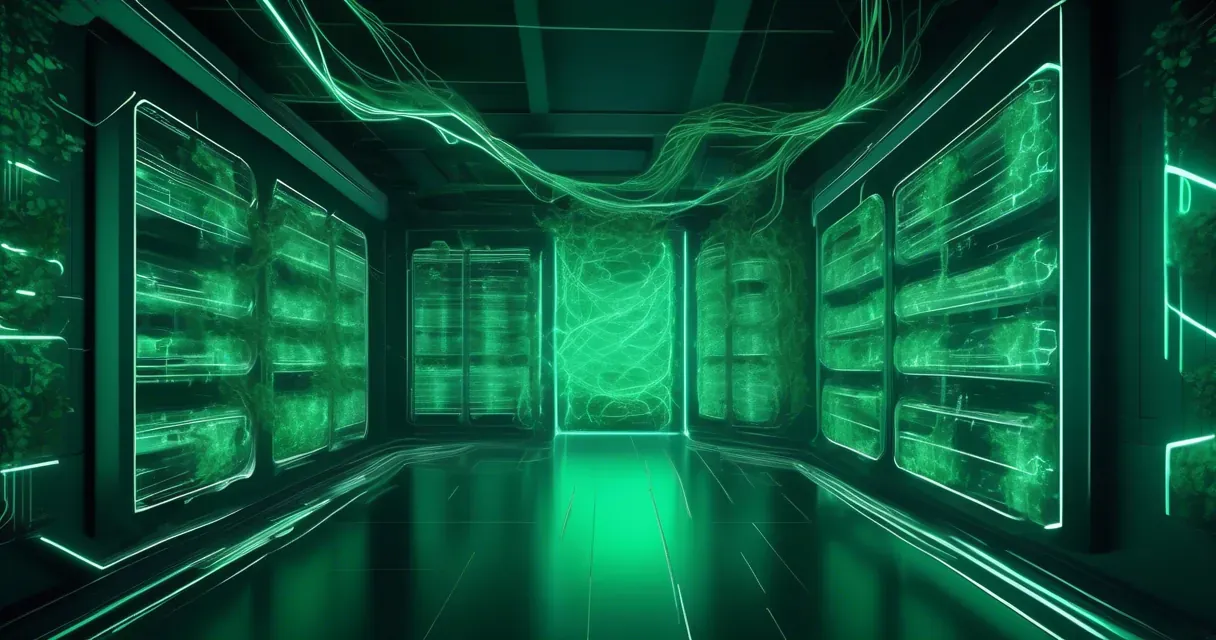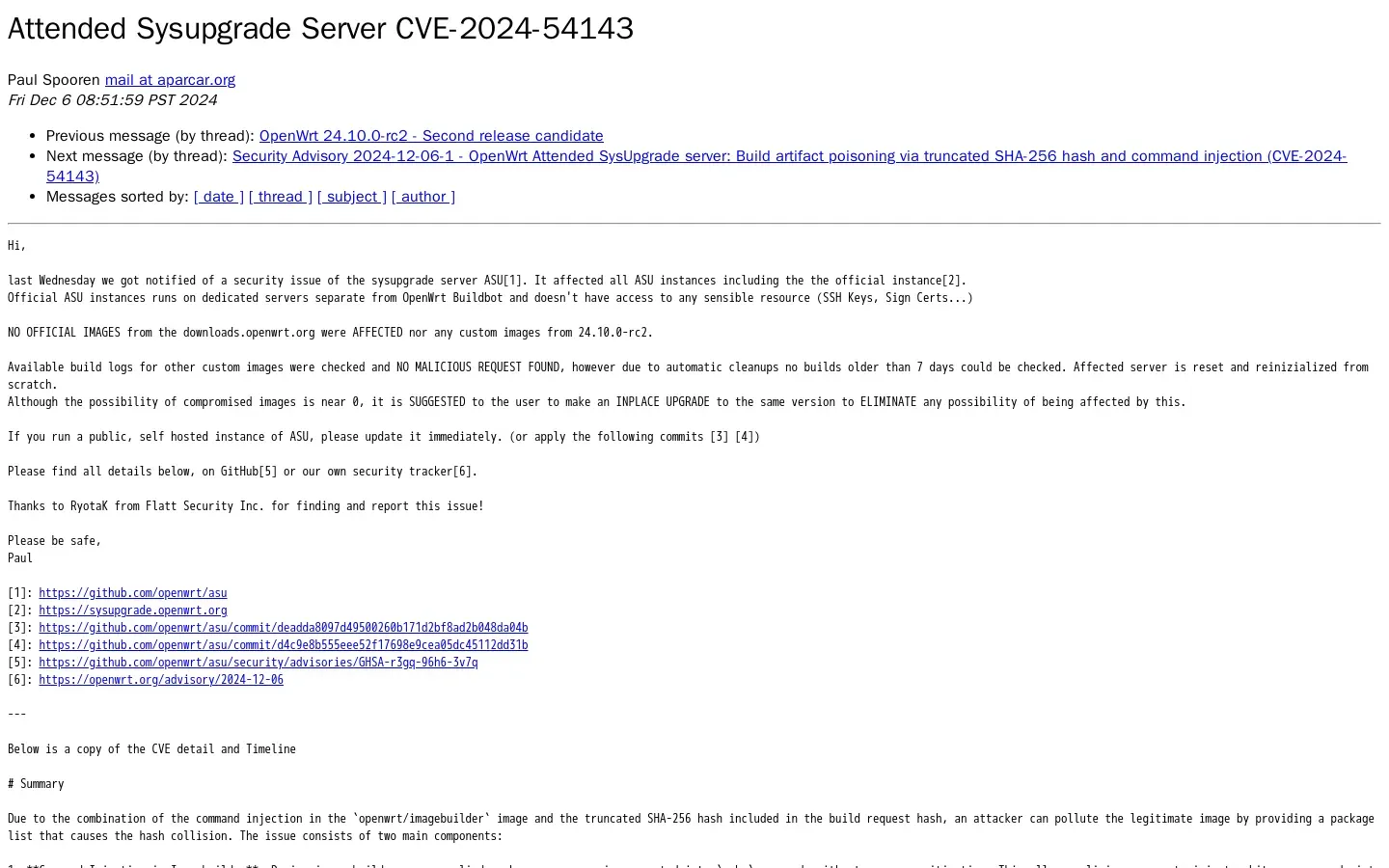
Critical Vulnerability Identified in Attended SysUpgrade Server
/ 3 min read
Quick take - OpenWrt has issued a security advisory regarding a critical vulnerability (CVE-2024-54143) in the Attended SysUpgrade server, which could allow malicious actors to inject harmful commands due to build artifact poisoning linked to a truncated SHA-256 hash, prompting users to take immediate action to secure their systems.
Fast Facts
- OpenWrt issued a security advisory on December 6, 2024, regarding a vulnerability (CVE-2024-54143) in the Attended SysUpgrade server.
- The vulnerability involves build artifact poisoning due to a truncated SHA-256 hash, allowing potential command injection by malicious actors.
- Users are urged to assess their systems and implement security measures to mitigate risks associated with this vulnerability.
- The advisory highlights the importance of robust security protocols in software development and deployment.
- Immediate attention and remediation are essential to protect against potential exploits that could compromise the integrity of software updates.
OpenWrt Security Advisory: Critical Vulnerability in Attended SysUpgrade Server
On December 6, 2024, a critical security advisory was issued by Paul Spooren, a notable contributor to the OpenWrt project. The advisory, disseminated via the OpenWrt announce mailing list, has brought to light a significant vulnerability identified as CVE-2024-54143. This vulnerability affects the Attended SysUpgrade server, posing a potential threat to systems utilizing this software.
Understanding CVE-2024-54143
The vulnerability centers around build artifact poisoning due to a truncated SHA-256 hash. This flaw could allow malicious actors to inject harmful commands into the system. The truncated hash weakens the verification process for software builds, making it easier for attackers to compromise the integrity of software updates delivered through the Attended SysUpgrade server.
Potential Risks and Implications
If exploited, CVE-2024-54143 could lead to command injection attacks. Such attacks raise serious concerns about the security of systems running OpenWrt. The ability to inject commands can result in unauthorized actions being executed on affected systems, potentially leading to data breaches or system disruptions.
The advisory underscores the critical nature of maintaining robust security protocols in software development and deployment. Users of the Attended SysUpgrade server are urged to take immediate action to mitigate these risks.
Community Response and Recommendations
The announcement serves as an urgent call to action for users and developers within the OpenWrt community. It is imperative that users assess their systems and implement necessary security measures promptly. The advisory recommends reviewing system configurations and applying any available patches or updates that address this vulnerability.
Steps for Mitigation
To safeguard against potential exploitation, users should:
-
Review Security Advisory: Carefully examine the details provided in the advisory regarding CVE-2024-54143.
-
Update Systems: Apply any patches or updates released by OpenWrt that address this specific vulnerability.
-
Verify Software Integrity: Ensure that all software updates are verified using complete SHA-256 hashes to prevent build artifact poisoning.
-
Monitor Systems: Regularly monitor systems for unusual activity that may indicate an attempted exploit.
By taking these steps, users can better protect their systems from potential threats posed by this vulnerability. As always, staying informed and proactive in addressing security advisories is crucial in maintaining system integrity and security.



